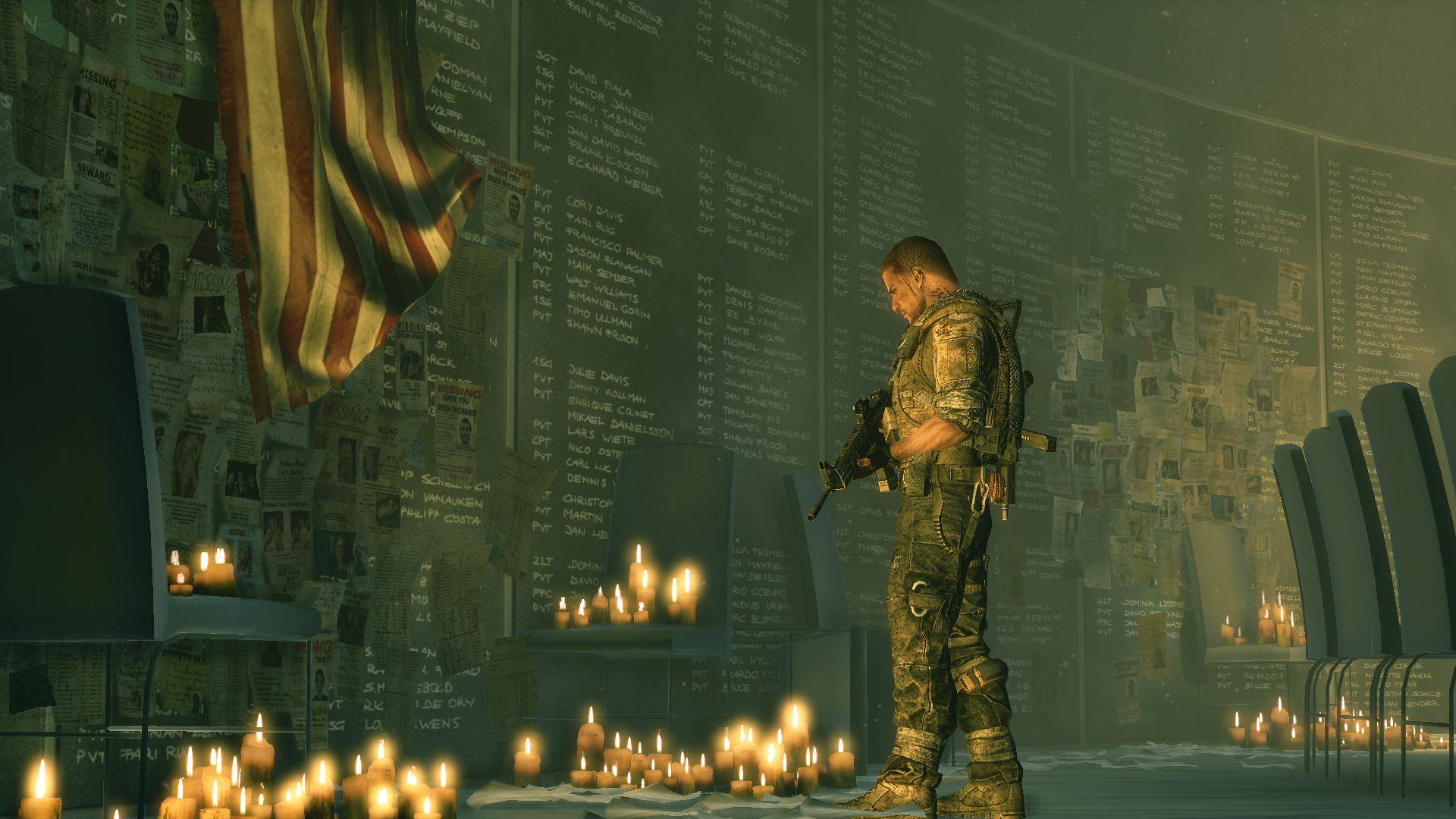Why games should be crueler to us

During the opening sequence of the We Happy Few alpha, Contrast’s dystopian action/adventure, there’s a birthday celebration where some of the playable character’s co-workers are smacking a pinata on a table with clubs and a riding crop, exhorting him to join in. To the protagonist who is no longer taking his Joy, a drug citizens in this world are constantly doped with to mask the dystopian machinery of a 1984-esque world of suppression and control, the impacts sound suspiciously meaty. When he finally gives in and decides to take a swing himself, he’s drenched by a sudden geyser of blood, and the colorful “pinata” is revealed to be the gory corpse of a giant rat, the innards (“candy”) of which his coworkers hungrily begin devouring.
Disturbing, right? And yet at the end of this sequence I feel like I’ve been let off the hook. The way the demo’s set up, you’re very aware by the time the birthday sequence rolls around that something is terribly wrong with this world, and as soon as the pinata appears it’s pretty obvious that it’s not actually a pinata. Up to this point, the demo has done an excellent job of building an increasing sense of dread, with the pinata reveal positioned as its culmination. The mind immediately begins to imagine what it could be, lying powerless on the table, being struck again and again by the cruel, blunt instruments of these brainwashed sociopaths. A cat, a dog? Another co-worker who’s refused to take their happy pills? Maybe a child?

It’s possible I just have a demented imagination, but when it’s revealed to just be a dead rat I’m a bit let down. Relieved, yes, but also vaguely disappointed. Obviously I’m not keen to see animals or children abused, but I do feel that what could have been a powerfully disturbing, impactful moment is made a bit toothless by a safe creative choice rather than a challenging one.
Video games are certainly no stranger to controversy, but what is a fairly new phenomenon is the idea of mature storytelling in games that treat their audiences like adults. For the art of game development to continue to evolve, games need to be able to tell stories that don’t just entertain us, but also challenge us, make us feel a little unsafe, a little on edge. Like any art form, some of the best experiences will be the result of experimenting with boundaries, and often times by being transgressive and even a little irresponsible. To be taken seriously as a medium, games need to establish that they’re capable of pushing limits in ways no other medium can.
To be taken seriously as a medium, games need to establish that they’re capable of pushing limits in ways no other medium can.
Violence has always been intimately linked with gaming, in large part because at the heart of most games is the challenge of overcoming obstacles. An integral part of play is solving the difficulties a game presents us with, either through superior reflexes, memory, mental endurance, or cleverness. There’s a reason, after all, we refer to finishing a game as “beating” it. Combat represents one of the most obvious challenges available to creators.
But that violence has also been largely abstracted and sanitized, to the point that in most cases there’s almost no feeling on the part of players of actually committing acts of violence. The action of slaughtering a bunch of human beings in a video game is much closer to puzzle solving than actual physical violence (to the point that that designers have begun referring to such scenarios as “combat puzzles”), all the horror stripped away to the point that we celebrate games that most gloriously throw the constituent parts and paraphernalia of death in our face (bloody finishing moves, executions, and dismemberments).

All of which is fine, and the games (and combat) as puzzles construction is one I’ve enjoyed for a very long time. But I also think that games can and should be much more, that they can be real cultural artifacts and explore real ideas, and are an art form the surface of which we’ve barely begun to explore.
Sign up to the GamesRadar+ Newsletter
Weekly digests, tales from the communities you love, and more
Moments where cruelty shows us the power of interacting are rare, and their scarcity makes them stand out more vividly. Few players who made it through the grueling final episode of the first Telltale Walking Dead series will ever forget the moment they were forced to decide Lee’s fate. Nor will we soon forget the dawning sense of horror as we realized we’d been shelling innocent civilians with a deadly chemical weapon in Spec Ops: The Line. These moments transform games from disposable entertainment to memorable landmarks in the memories of the people who play them.
Games need to be crueler to us to remind us of that, to puncture that thick, desensitized membrane of abstraction. By divorcing us from the humanity of the people we fight, games also separate us from the characters we’re supposed to empathize with. When games hurt us, when they carefully build tension and suspense, and give us fully realized, three-dimensional characters that we can develop real attachment to, and then resolve those situations or destroy those characters in really traumatic ways, they strip away some of that safe remove and give us a taste of something much more vivid and closer to reality.

And this is a medium uniquely capable of making its audience feel complicit, or responsible, or of inflicting difficulties or horrors on people who engage with it. VR is a powerful new tool for linking the player with their avatar, capable of building a more physical attachment or immersing people more completely in different situations. And games have the advantage over film and literature and other passive entertainments in that they can make players feel some of the weight of personally committing acts that they would never consider in real life. There’s a world of difference between watching a character in a film put down a pet, to falling off your dying steed in Red Dead Redemption and then carving it up for precious resources moments later.
Inflicting grief and horror on us isn’t just important for establishing games as a medium where thought-provoking, mature, meaningful art can be created, it’s most important for the reason I alluded to above: connecting us to the experiences we’re playing. Powerful negative experiences open us up to powerful positive experiences, stripping away some of the heavy emotional armor we’re generally so comfortable behind and exposing us to the possibility of intense feeling. Things like pleasure, joy, and love aren’t possible without a bracing dose of their vile counterparts. The reality is that for games to be truly kind to us, they first need to be very cruel.
Alan Bradley was once a Hardware Writer for GamesRadar and PC Gamer, specialising in PC hardware. But, Alan is now a freelance journalist. He has bylines at Rolling Stone, Gamasutra, Variety, and more.
Most Popular



